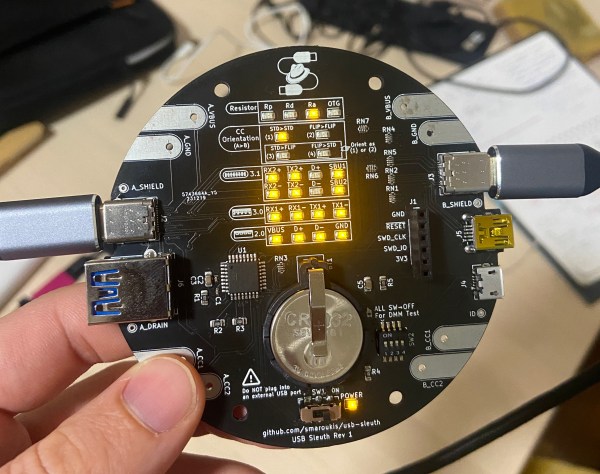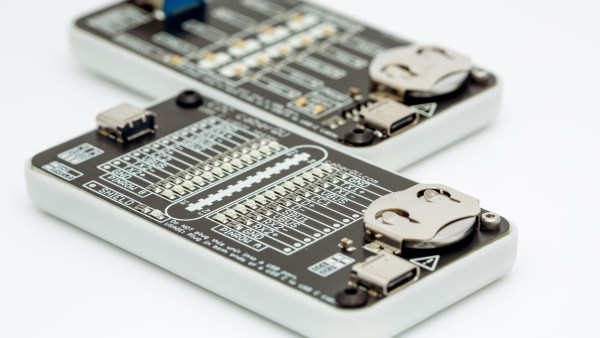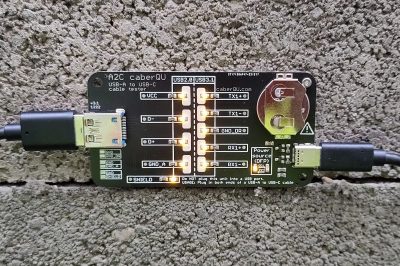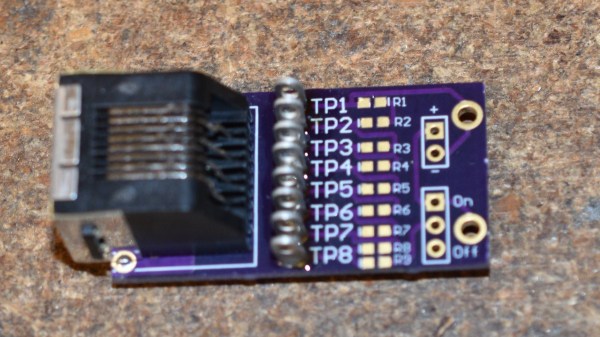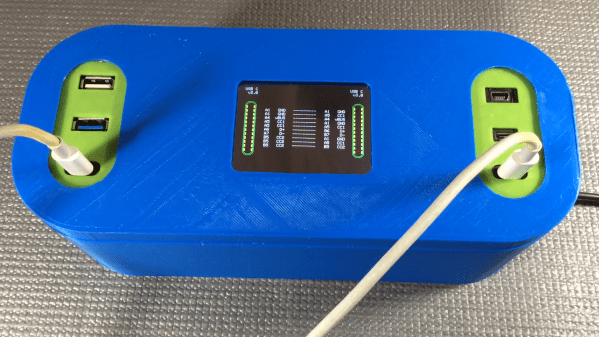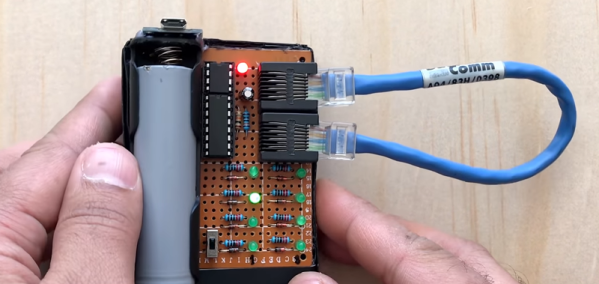Ever wondered why your Arduino wasn’t programming, only to find out that the cable doesn’t have any data conductors? Worry not, [Spencer Maroukis] has got you covered with the USB Sleuth Cable Tester!
The cable tester is a beautiful black circular PCB, with USB ports of nearly every type on the edges. It works partially through passive detection with LEDs and otherwise through active detection of things like the orientation with an STM32 powered by a coin cell battery. But it gets better: There are disconnect switches and exposed pads to test some of the conductors with a digital multimeter!
It may not be necessary for all of us, but one thing is clear: When you needed a good USB cable, you wished you had this to actually test it. The design is open-source too, which is definitely nice if you want one for yourself.
Meanwhile this isn’t the first USB cable tester we’ve seen here.

